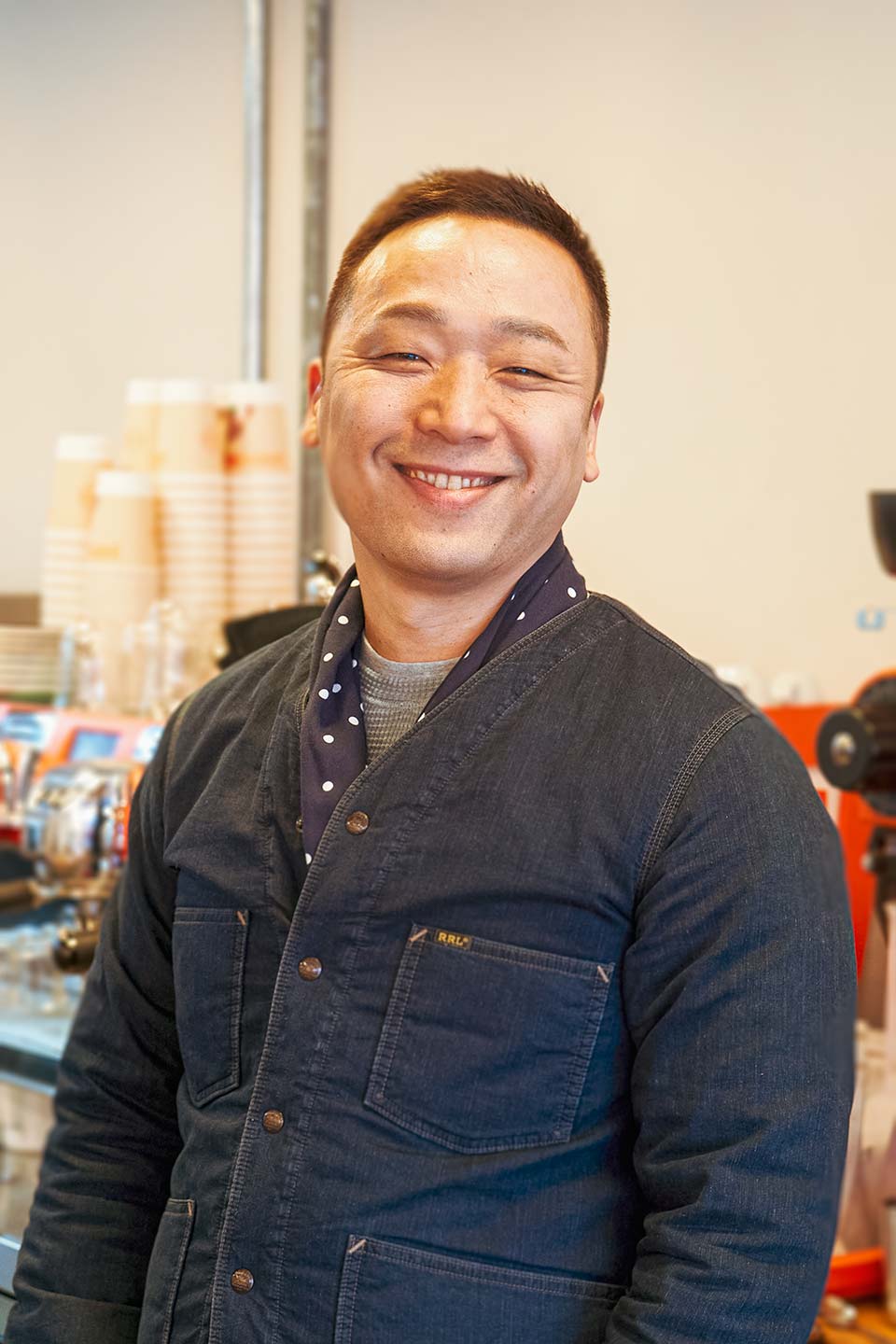
Dreams are Made with Hard Work Not Shortcuts
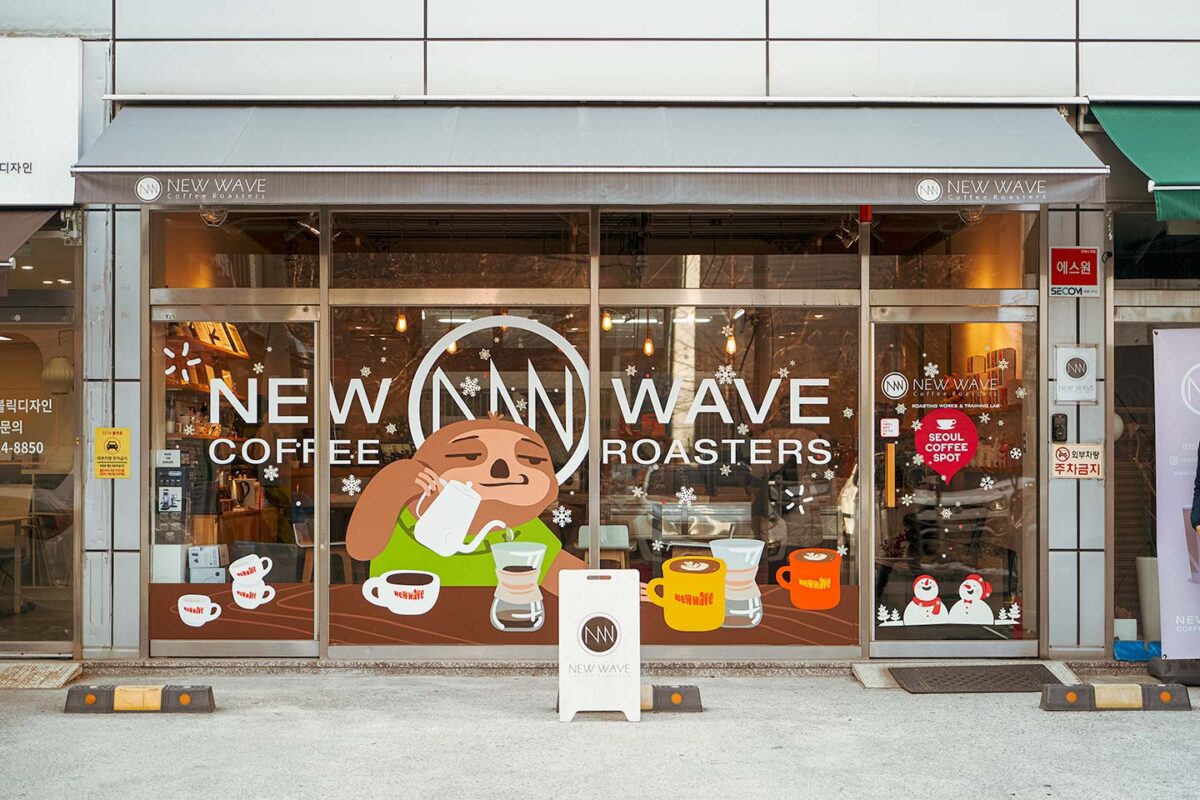
New Wave Coffee Roasters may be located in Seoul, South Korea, but Seung Kwon Yoo took the inspiration for his business model from two global leaders in specialty coffee: Counter Culture Coffee in the US and Square Mile Coffee Roasters in the UK. Founded in 2013, Seung’s decision to run New Wave Coffee Roasters (New Wave) as a wholesaler and training center has helped him build a robust business that can stay afloat in the highly competitive Korean coffee market.
It is no wonder then that Seung is revered by many as a pioneer of the country’s specialty coffee industry and has been integral in clearing the way for a new generation of roasters. In his training center he provides teaching, workshops and cupping sessions, often in a one-to-one setting. Two of his former students took second and third place in the world coffee roasting championship. Turning 50 this year, Seung talks about why he is so invested in developing the next generation.
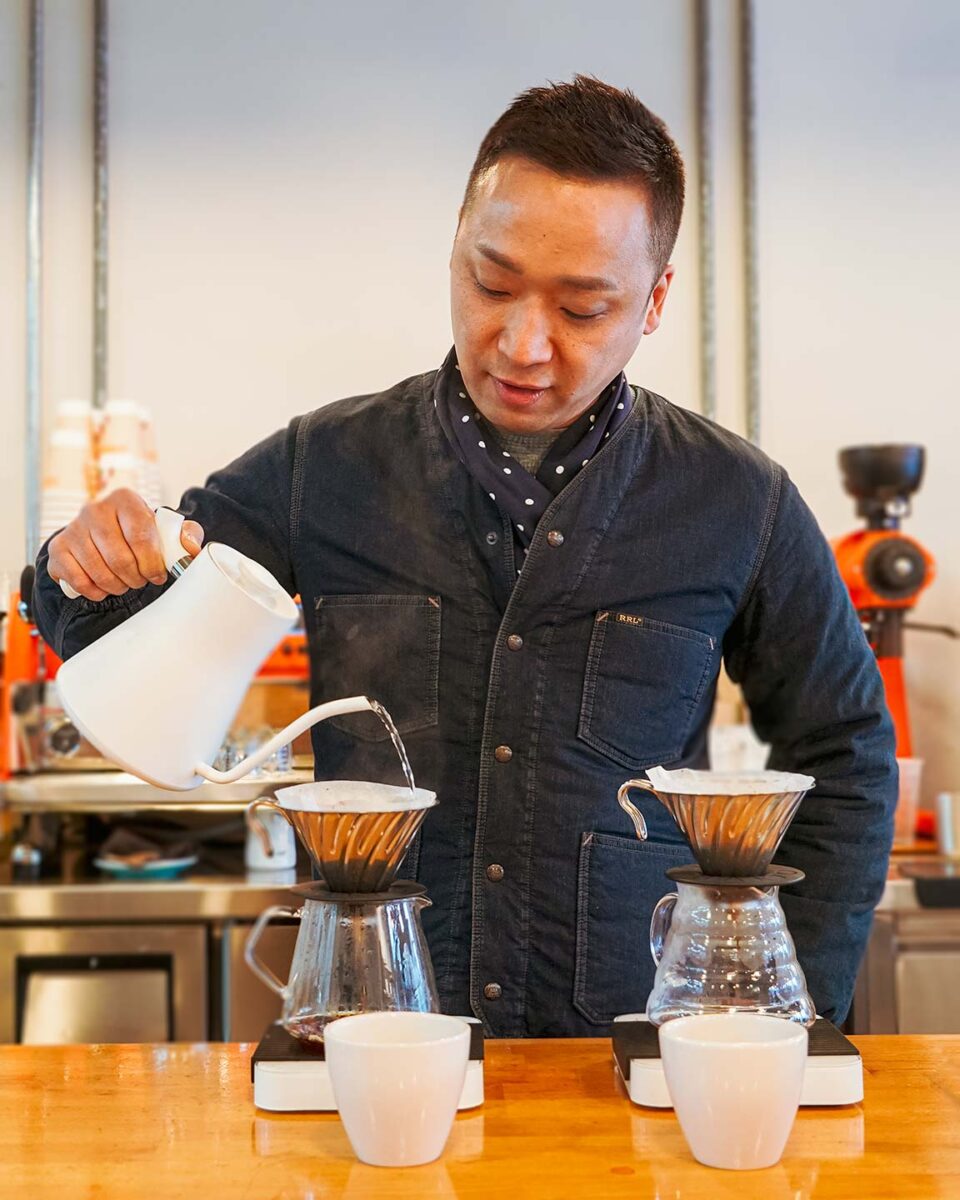
Man cannot live on dreams alone
On average, 30% of small businesses fail in their second year, 50% in their fifth and around 70% in the tenth year of business. According to Seung, the statistics are even higher in Korea. When it comes to the coffee industry, with its easy entry and minimum investment, the survival rate is slimmer still.
As the job shortage situation worsens in Korea, opening up a trendy coffee shop is an option that appeals to the youth. But the highly competitive market coupled with an overly optimistic outlook and a lack of skills has resulted in a quick death for many new businesses. Seung shares his concerns about the situation.
“The real issue is that when the business is failing, the owner calls in a consultant, or joins a franchise instead of trying to improve their knowledge or techniques. This is what is missing in the industry nowadays. The fact that it is such an easy industry to enter means that many are not prepared to do the work required to make it a success. In my training course, I always talk about the importance of preparation before opening a business. Those who are serious about their business will spend three to four years building their skills.”
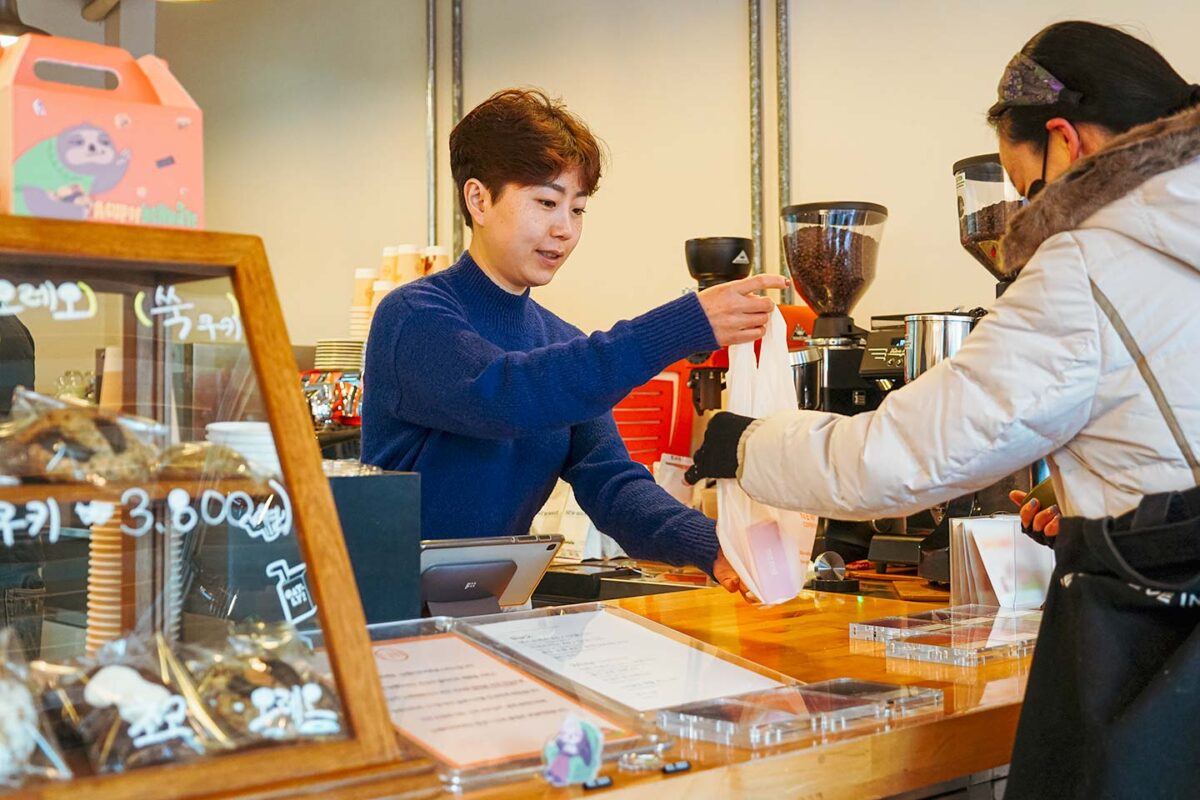
Thanks in part to Seung’s reputation, when New Wave puts out a recruitment ad, they end up with 200 to 300 applicants for just three positions. In the past, New Wave would sometimes hear from people who said they would be happy to work for free. But their motives are not what they seem.
“They just don’t want to pay what it costs to do the training and are looking for a shortcut. If they work with us, they’ll gain on-hand experience and skills, and learn how to run a cafe. I understand where they’re coming from, but I had a bad experience as a barista where I was fired over something trivial. So I always say no to these requests. Working and learning are not the same thing. And all work should be paid what it deserves.”
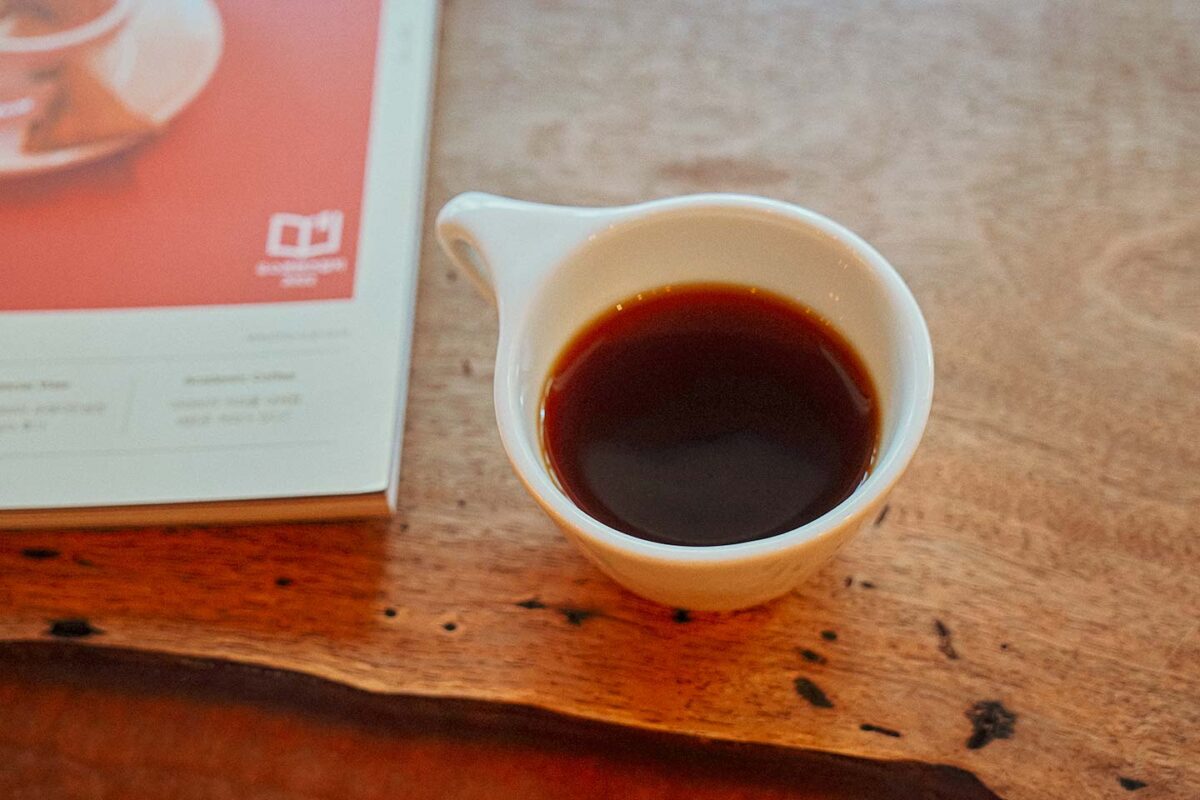
Seung first joined the coffee industry as a university student back in the 90s and has watched the industry develop in Korea over the last quarter century. The internet and the rise of social media has not only revolutionized society, it has made it easier to learn more about coffee.
“That’s not a bad thing. But you also end up with so-called coffee experts on YouTube who come across as professionals, but more that 90% of their advice is wrong. Eventually, people who are serious about the industry will seek out the real experts.
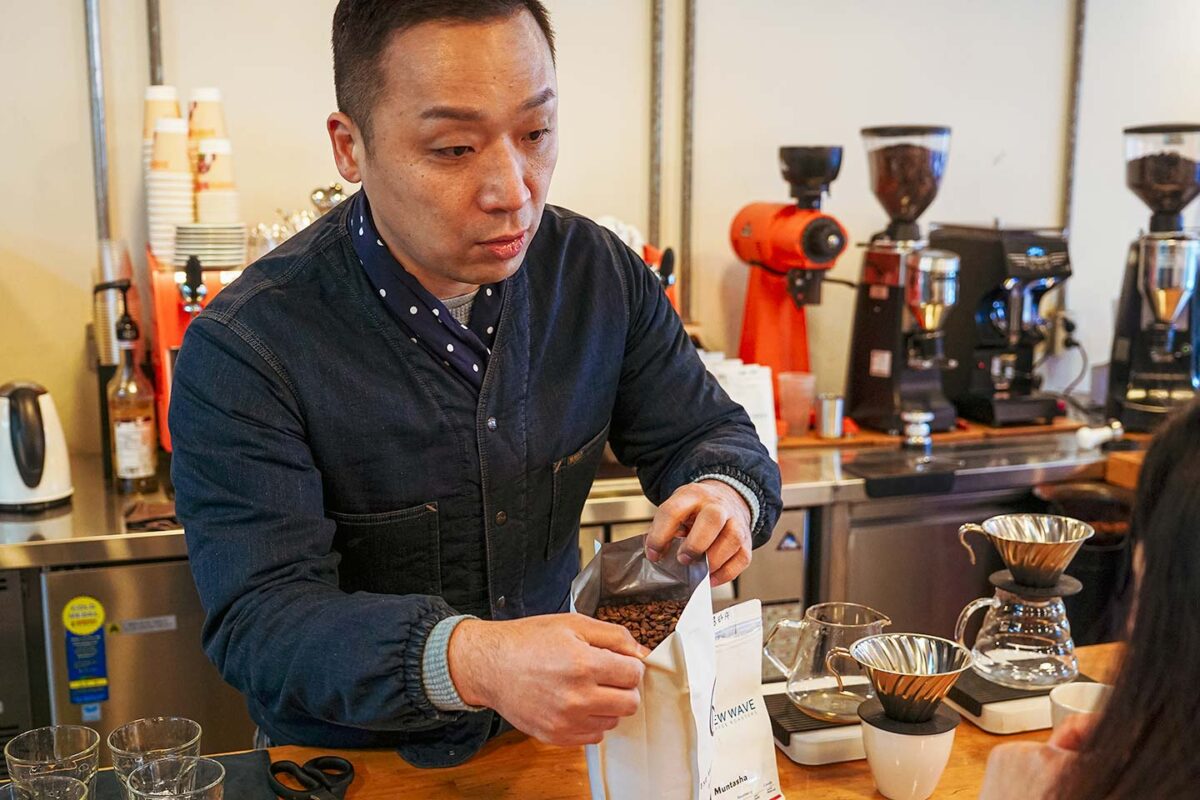
From my own experience, I’d say that more than 90% of new roasters are oblivious to the reality of the situation. They live in this fantasy where they think good coffee is simply a matter of roasting the beans properly. Or that they can invent a blend perfectly balanced between sour and sweet, that works with everything from espresso to latte. But it’s impossible.
Coffee is essentially a food science. If you want to produce a good coffee, then you need to know your ingredients, and have a clear understanding of what defines a “proper” roast. You need proven data to help establish the criteria. Of course, there’s nothing wrong with dreaming and I know how they feel. I was young once and I had my own dreams and fantasies about how I’d make coffee.”

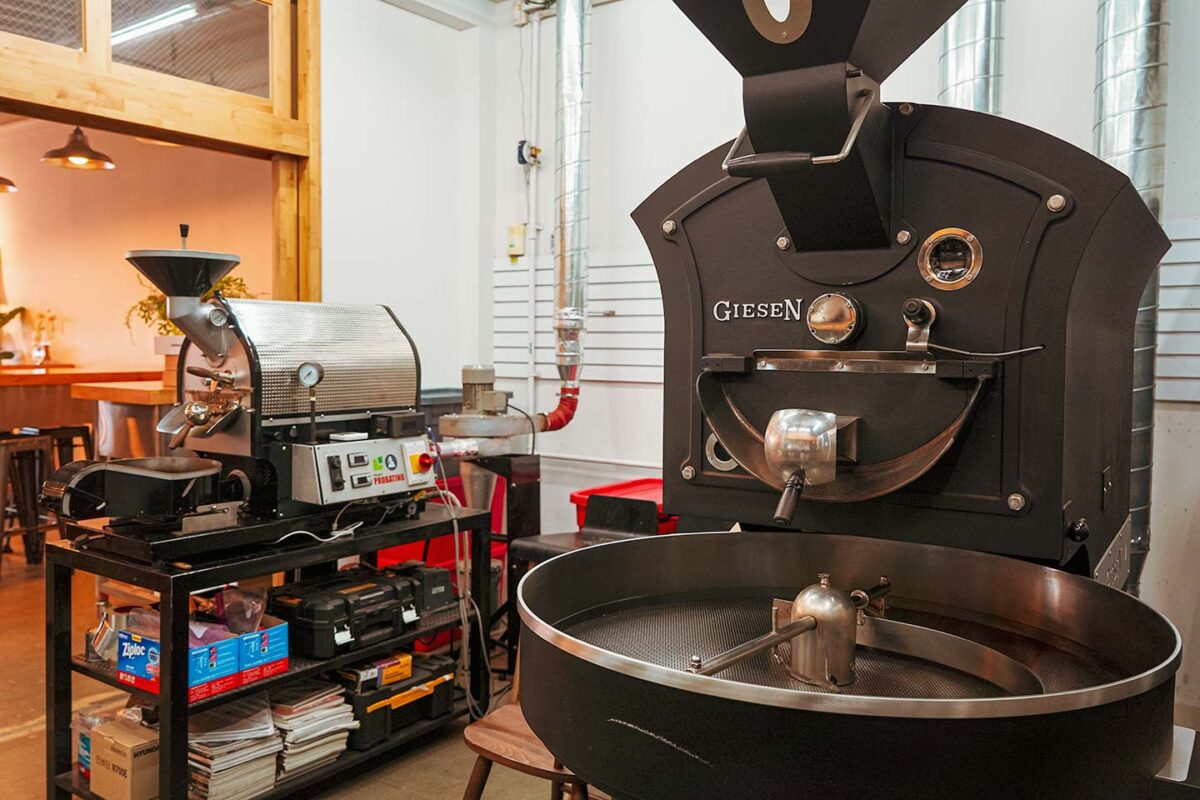
Forging your own path when there’s none
As a university student, Seung worked part-time as a bartender and barista. His introduction to roasting came in 2001 when he was around 28. Curious about how green beans became roasts, he headed to downtown Myeong-dong to find out and following an intriguing aroma, he discovered a micro roastery cafe.
“They let me watch the roasting process and I was blown away by all the different aromas. Chocolate, nuts, orange, how can one tiny bean have so many different dimensions? I didn’t know the answer but I knew I wanted to find out.”
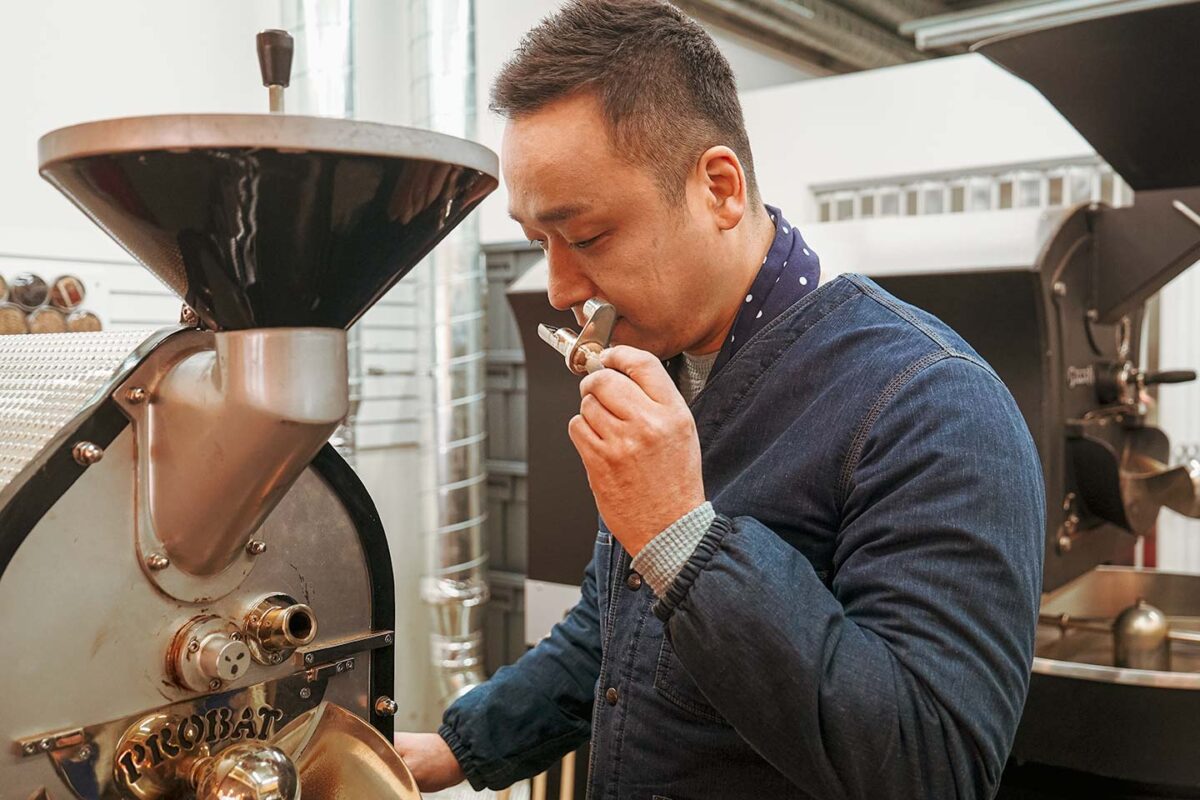
Still a university student, Seung mulled his future while roasting beans at home, using a roasting net and small roasting machine. But soon after graduating, he married and became a father and knew that it was time to make some grown up decisions.
“Back then, baristas could be fired for something as simple as a drop in sales, so it wasn’t a stable job. I’d noticed that there were only two roasters to every eight baristas. Roasters were essential to the industry, but there was far less competition and I thought it would be a more stable career than a barista. With a family to support, I had to think of a way where I could realistically continue working in an industry I loved.”
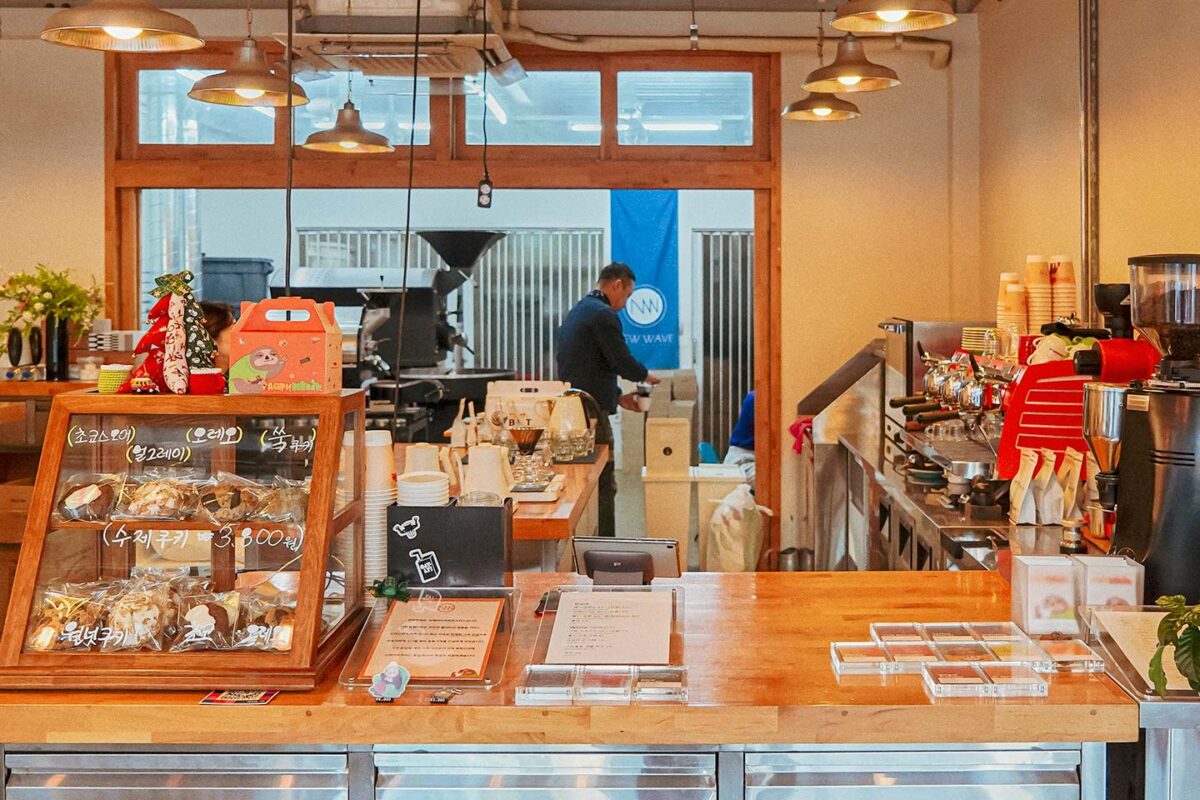
The decision may have been obvious, but the path was not. Most roasters were not willing to share their knowledge or teach profiling, and asked for a lucrative fee in exchange.
After mastering the basics of roasting, Seung applied to every job he could find. But when he finally found a position, he was given only menial tasks and quit before the trial period was up. He then worked at a company for a year and a half where he was responsible for roasting. When he left, he went freelance, offering training to baristas and roasters, and serving as a judge at competitions.
“Before the internet, it was hard to get information and a lot of the information out there was wrong. And most people didn’t have money lying around to invest in a project. So a lot of people would give up before achieving their aim.”
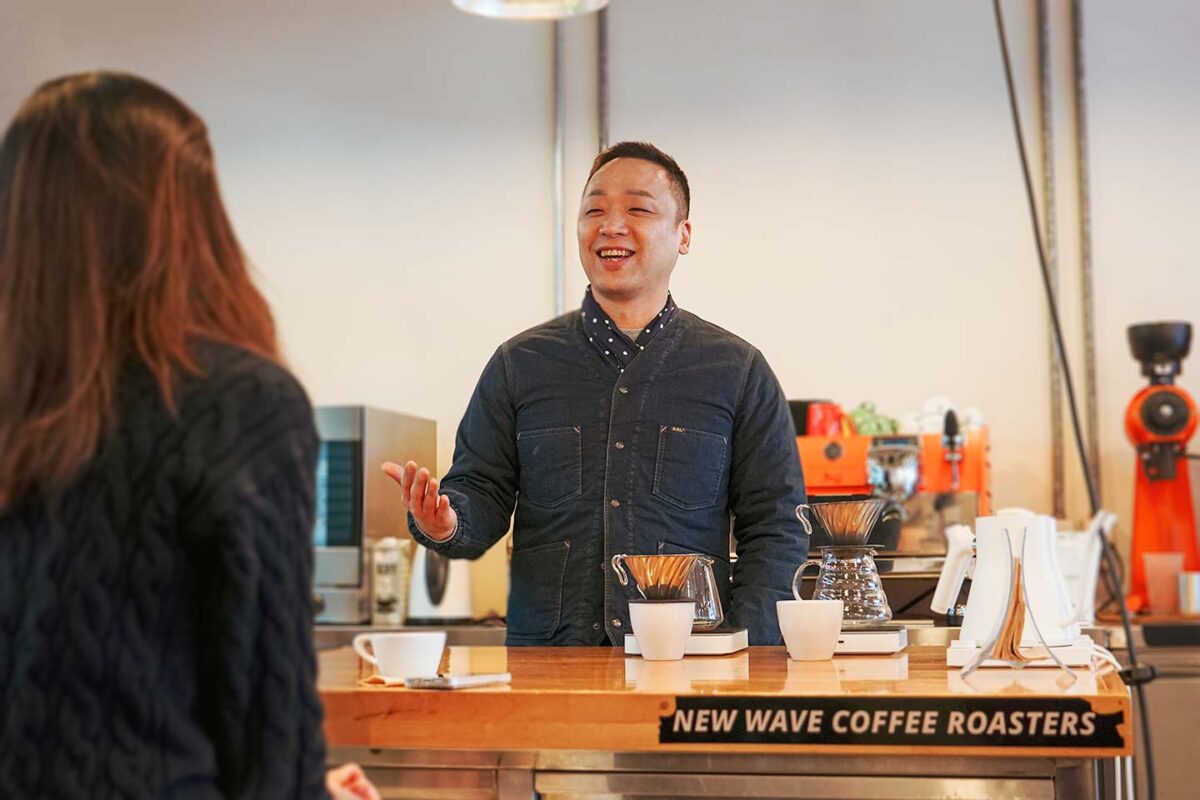
Seung wanted to change this situation. In 2008, he began a blog under the handle Uriel. Using his Japanese language skills, Seung read Japanese books on coffee, and then wrote about it in Korean and published it on his blog. While his publishing pace may have slowed down over the last ten years, the blog is still going strong 14 years on and he has written over 1000 articles.
And his blog is helping to change the situation, one person at a time. A roaster told Seung how he had been struggling to make a breakthrough for nearly four years when he came across the blog and finally found the advice he needed to succeed. The blog allows Seung to expand his reach in a way only the internet can.
“Even if people don’t know who I am, they know Uriel. It’s also helped with increasing customers after launching my business.”

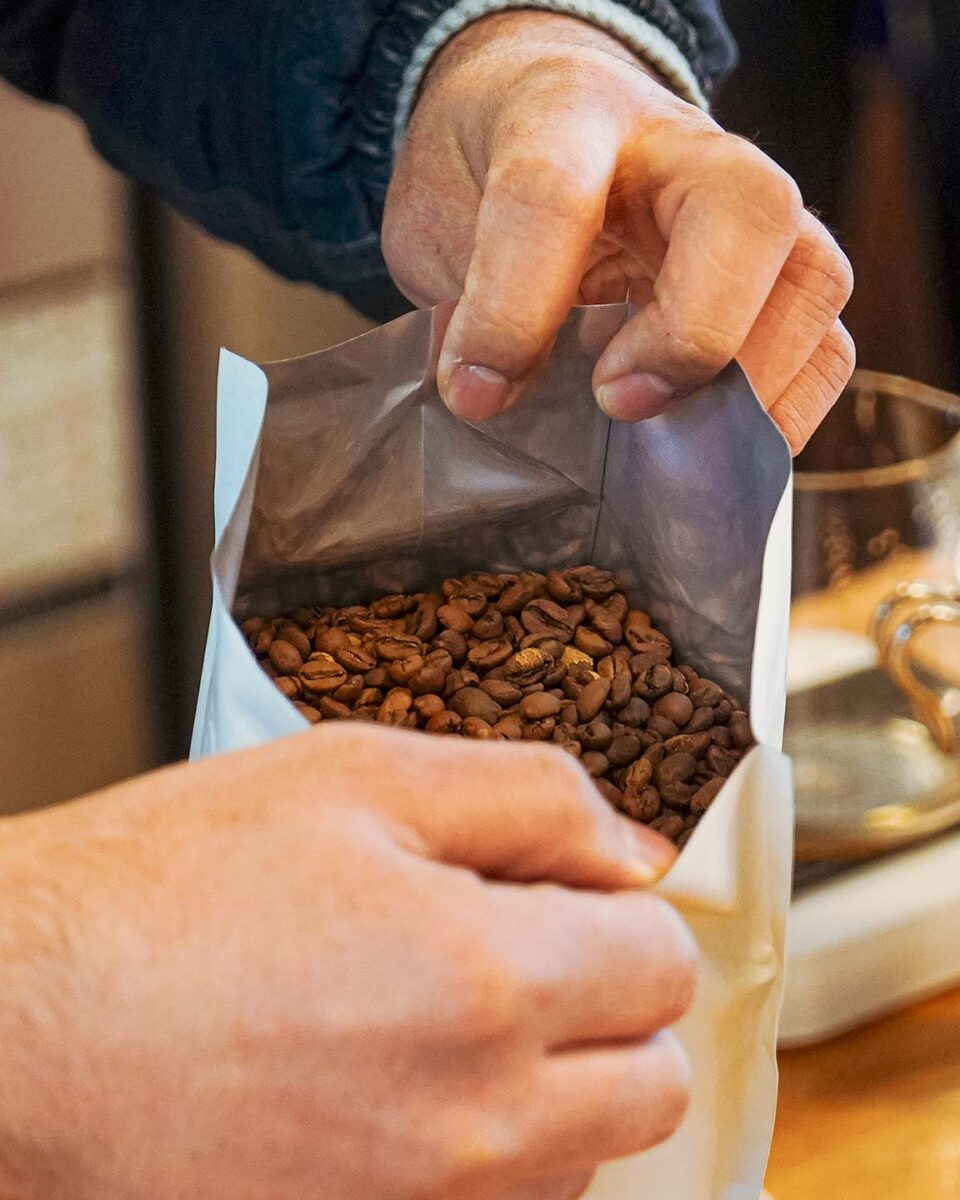
Strength in teaching
After hitting countless walls, the turning point for Seung came in 2010 when he became a certified Q Grader. He tried to deepen his knowledge, learning from SCA certificate and Q Grade teachers, and working as their assistants. He wanted to learn everything he could to avoid brewing a bad cup of coffee.
Perhaps the most significant figure during this time was Marty Curtis, who was tuning the roasting machine of a well-known US roaster. Marty introduced Seung to other roasters in the industry, and helped organize a professional visit to roasteries in the US.
Seung began his journey in the US with a two-week trip visiting renowned roasters, then headed to Guatemala, Panama, Costa Rica, and other producing regions in Central America. He moved on to Australia, and for two weeks observed the uniquely ingrained local coffee culture which has produced a viable career for baristas.
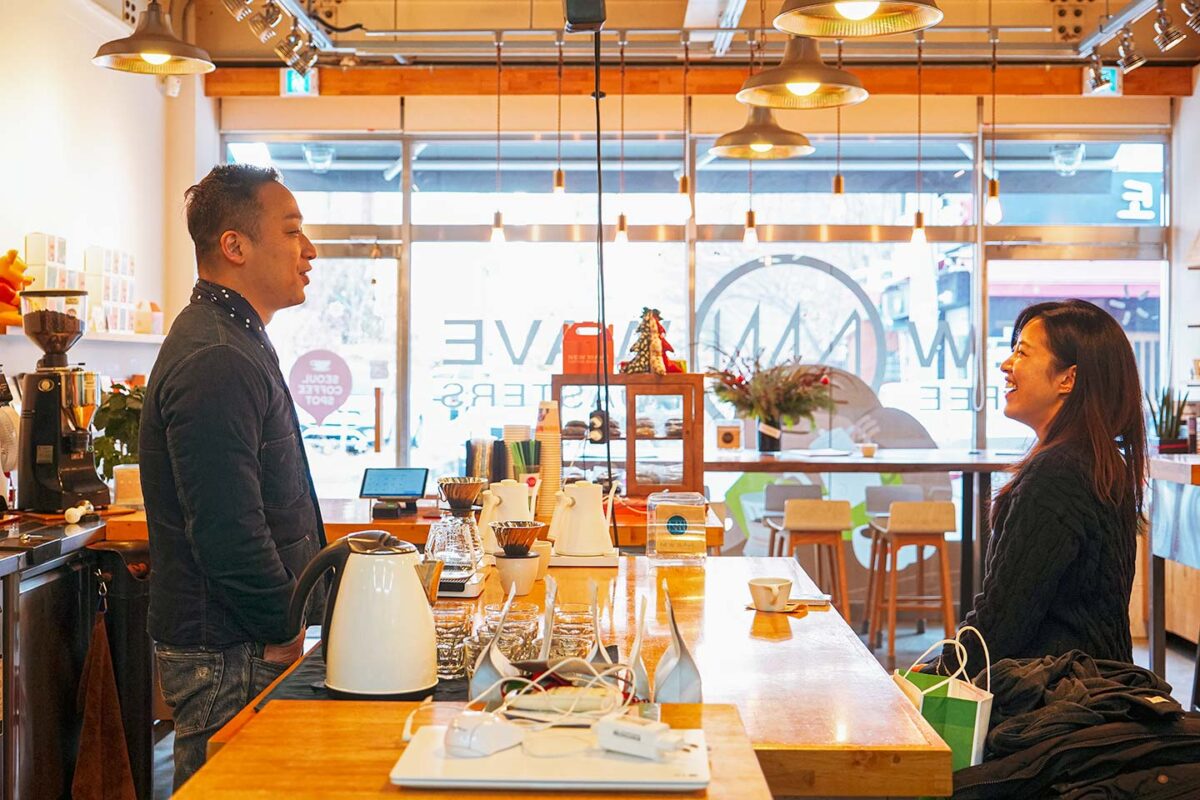
“There were so many things that I couldn’t learn from books. I wanted to experience them and find out if what I knew, what I felt, was correct. Coffee is as much a business for the producers as it is for me. They wouldn’t put anything up on their website or on socials which could damage their reputation or business.
But when I meet people and we go out for a drink, I learn how they really feel about what they do and what goes on behind the scenes. And that helps me decide. When I hear how the producers have spent a year pouring their heart and soul into their produce, but still can’t get a fair price, it affects me and makes me take my roasting more seriously. If you never meet the people you’re buying from then you’ll never be able to approach coffee with the level of depth and gravity that it deserves. And this is why so many coffee shops fail today.”
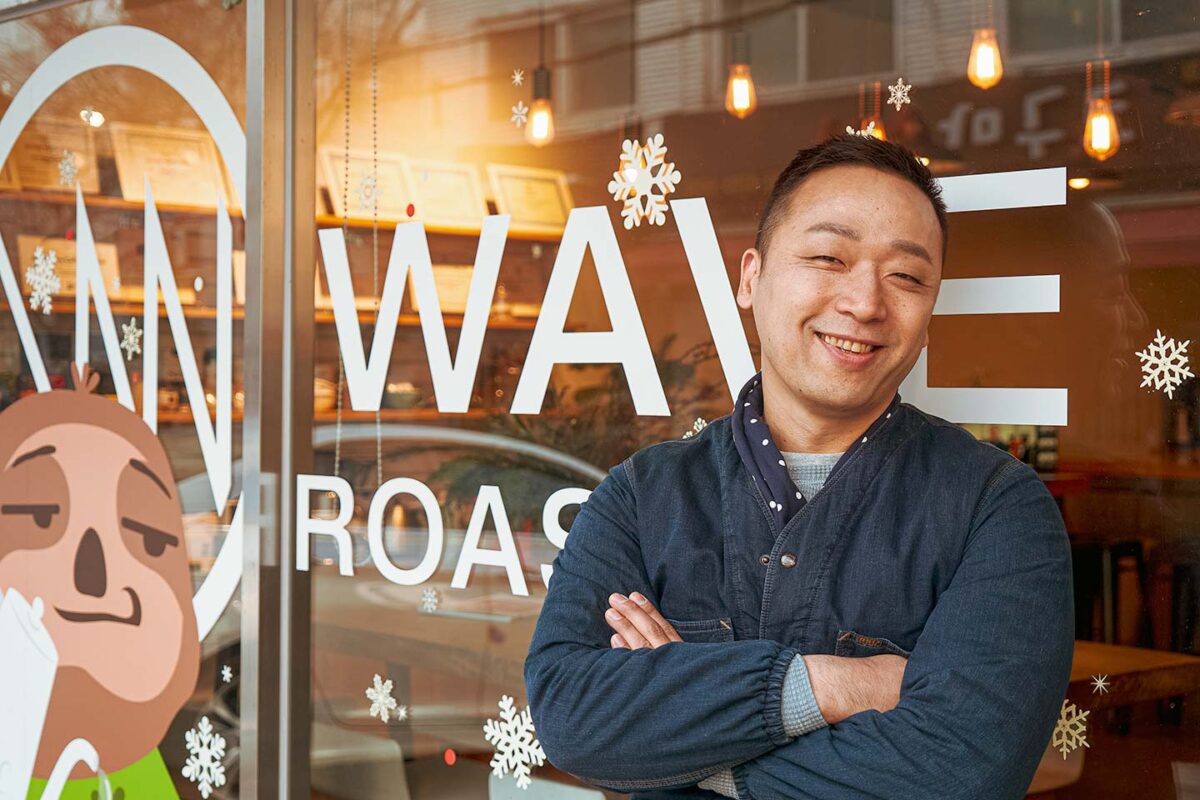
Counter Culture and Square Mile are renowned for a business model that prioritizes sustainability while combining professional training with wholesale. When he founded New Wave, Seung saw these two as the benchmark to aim for.
“I see the coffee industry as a pyramid. At the bottom are the cafes buying the roasted beans. Above them are the roastery cafes, and at the top are roasters who sell beans and offer training.
It’s like driving a car. Before you can go out onto the road alone, you need to take lessons from a pro and get a license. With coffee, you need to learn from an expert how to do it properly before you take it out into the world. And I knew that if I could provide training, I could add value to my business while making a real impact on the industry.”

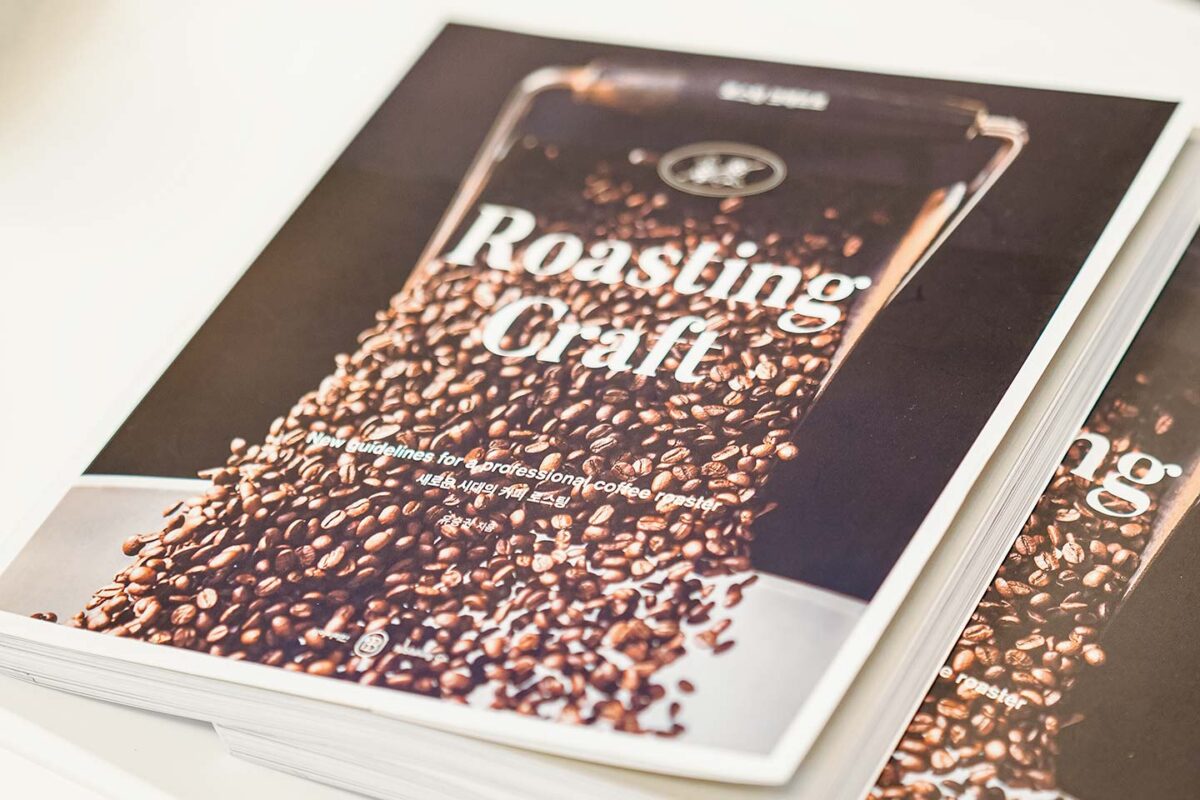
A career in coffee is what you make it
With more than twenty years experience in the industry, Seung is also passionate about training the next generation. He has seven students a month, often teaching one-to-one. In 2018, Seung published “Roasting Craft: New Guidelines for a Professional Coffee Roaster” in Korean and English translation. The Korean version has sold well and is already in its ninth edition
“One of the great things about training is seeing a former student win a contest. Then, when I hear that my teaching has somehow helped them build a successful business, it makes me really happy. Some of my students have already surpassed me in skill and scale. I know that what I have now is because Marty and other veterans were willing to share their knowledge with me and encourage my curiosity to learn. That’s why passing on my knowledge to the next generation is so important to me.”
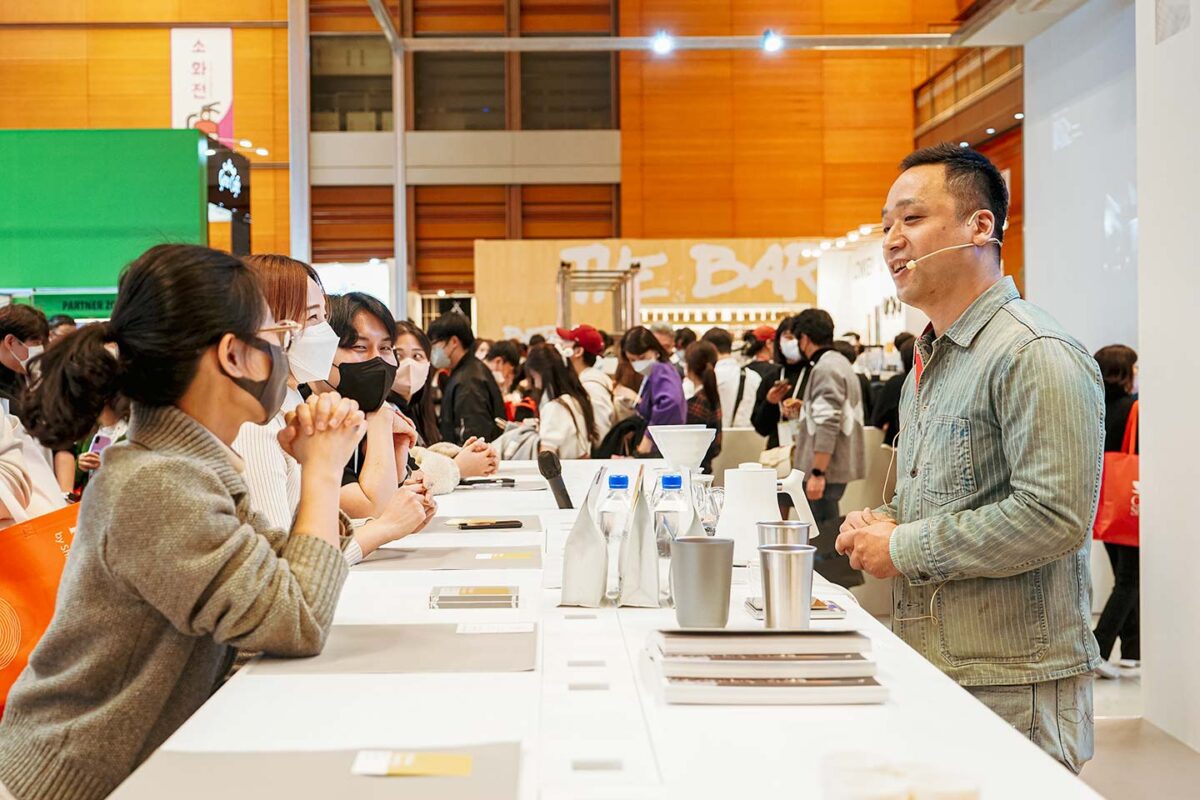
Some people would say that Seung is adding to his competition by putting more talent into the specialty coffee industry. But that’s not how he sees it.
“It makes my job much easier. More talent means more people enjoying good coffee, and a bigger market. That leads to more revenue and has the potential to draw visitors to Korea. Like Luffy in the manga One Piece, I want more people to “join my crew!” and make it stronger.
I’ve met people overseas who’ve looked down on my skills just because I’m Korean. They assume that because the industry is still in its early years, that I don’t have the right knowledge or know anything about roasting. Teaching the next generation about coffee is a way to prove these people wrong.”
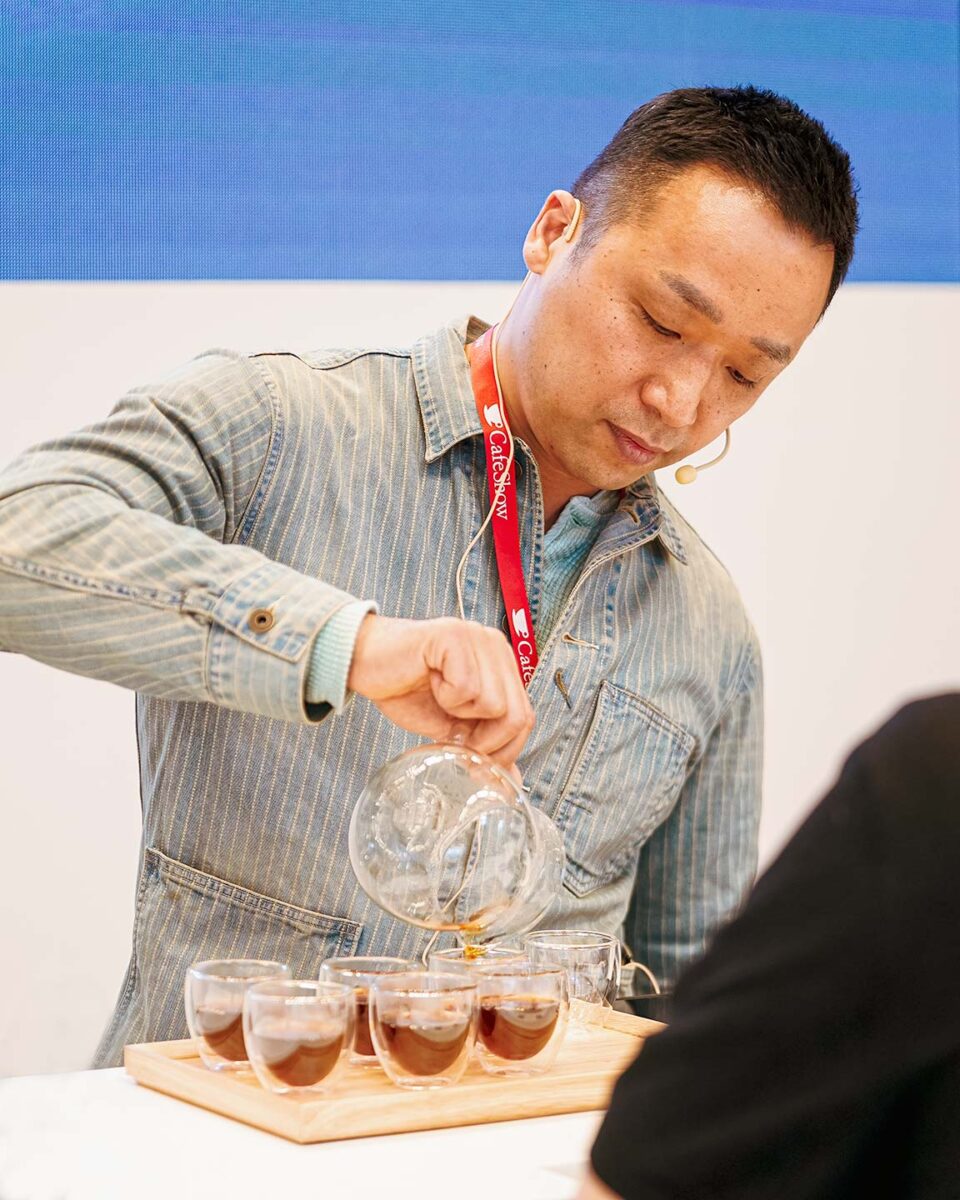
According to Seung, only 10% of those who did the Q Grader course with him in 2010 are still in the industry, and he’s lost contact with the majority of others. Seung has consistently shown that keeping your feet firmly on the ground is how you can make your dream a reality, but that doesn’t mean he limits his vision.
“One day I’d like to sell New Wave to a big corporation, enjoy the money but keep working until I die. I want to visit coffee producing countries I haven’t been to, and to check out the market in Norway too. Traveling the world, tasting delicious food, then putting it all together and posting it on YouTube is something I’d like to try.
Maybe I’ll become the James Hoffman of Korea! But seriously, I’d like to show how a career in coffee is not just about brewing. I want people to know that it can be whatever you want it to be. There are lots of ways to enjoy the coffee industry, even as you get older.”
MY FAVORITE COFFEE
My favorite coffee is when a customer takes a sip and I hear a tiny “Delicious!” slip out. Or when someone says “I heard your coffee was good, but it’s so much better than I imagined.” It makes everything I’ve done worthwhile. And when they buy the beans, I know they’re not just being nice - and that makes me feel even better!
